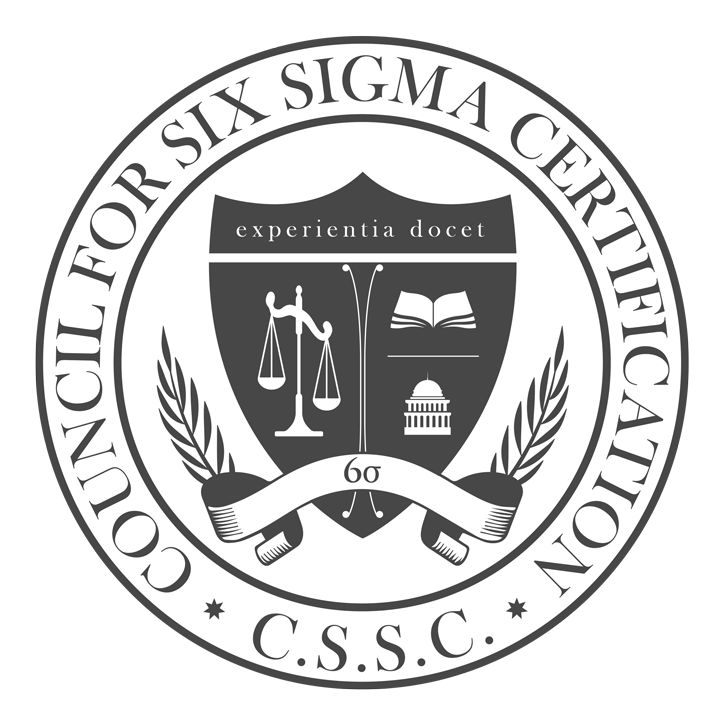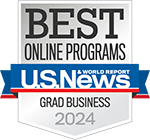Online Master of Science in Supply Chain Management Degree
Over the past half-century, the area of supply chain management has grown from improving labor-intensive processes to managing complex global networks. Overseeing a modern, global supply chain means developing and mobilizing complex international networks—driving growth and putting a premium on professionals with expertise in management of suppliers, acquisition of raw materials, transportation of goods, financial management, inventory planning, warehouse management, and managing flow of information. In addition, the disruptive effect of COVID-19 on commerce and the supply chains that support it has underscored the need for robust, data analytics-driven supply chains that are agile, resilient, and sustainable.
During this transformative era, international trade association MHI reports that the biggest labor challenge for organizations is finding and retaining qualified skilled workers—and this need is expected to increase over the next few decades. Meanwhile, Supply chain jobs, including high-tech roles in data analysis, cloud solutions, supply chain planning, and risk management, are projected to grow in line with the national average of 9 percent over the course of the next decade, according to the Association for Supply Chain Management (ASCM).
Those with a master’s degree in supply chain management are well-positioned. In their 2021 career and salary survey, the ASCM finds that the annual median salary for supply chain professionals with a master’s degree is $99,900. In addition, one-third of job-seeking respondents reported that they found employment in less than a month.
The online Master of Science in Supply Chain Management (MSSCM) degree program at Boston University’s Metropolitan College provides the analytical basis for the design, optimization, operation, and improvement of a global supply chain. The curriculum provides comprehensive coverage of quantitative tools to support decisionmaking in complex, ever-changing supply chain environments. These tools include time series data analytics, mathematical optimization, simulation, statistical and financial analysis, regression, lean methods, and control charting. The application of these tools supports capacity and inventory buffering, customer flow analysis, demand forecasting, risk assessment, queue modeling, quality assurance, and Six Sigma process improvement. Particular attention is given to recent tendencies in supply chain digitalization and sustainability efforts with the prevalence of global pandemic and climate change impacts. Students have the opportunity to gain hands-on experience through an industrial-based capstone project and earn a Six Sigma Green Belt. All students joining the program are supported by several self-paced laboratories that prepare them for the analytical curriculum, including mathematics and statistics and associated software applications.
Students who complete the master’s degree in Supply Chain Management will be able to:
- Demonstrate the ability to use interlinked data inputs, analytics, and systems to support decision-making in a supply chain that is geographically dispersed and culturally diverse.
- Utilize financial statements and apply a systematic process-oriented approach to evaluating quality in manufacturing and service supply chains using statistical calculations.
- Apply statistical methods to supply chain problems such as demand forecasting, quality control, risk analysis, safety stock calculations, and inventory aggregation.
- Apply analytical methods to supply chain problems such as inventory optimization, stochastic inventory models, facility location optimization, capacity analysis, queuing theory, and delivery optimization.
- Utilize mathematical modeling and optimization theory by choosing the appropriate quantitative tools to support supply chain operations.
Degree Concentrations
Students in the Supply Chain Management graduate degree program have the option of choosing a concentration in:
Awards & Accreditations
 Accredited member of AACSB International―The Association to Advance Collegiate Schools of Business
Accredited member of AACSB International―The Association to Advance Collegiate Schools of Business
 Supply Chain Management program courses Operations Management: Business Process Fundamentals (MET AD 605) and Quality Management (MET AD 734) may qualify you for Green Belt Training accredited by the Council for Six Sigma Certification—an Official Industry Standard of Six Sigma Accreditation for Six Sigma training providers worldwide.
Supply Chain Management program courses Operations Management: Business Process Fundamentals (MET AD 605) and Quality Management (MET AD 734) may qualify you for Green Belt Training accredited by the Council for Six Sigma Certification—an Official Industry Standard of Six Sigma Accreditation for Six Sigma training providers worldwide.
Why Choose BU’s Master of Science in Supply Chain Management?
- The Supply Chain Management program offers the flexibility of online or on-campus study formats, ensuring that students can earn their degree the way that suits them the best.
 In 2024, Metropolitan College’s online master’s degrees in management were ranked #6 among the Best Online Master's in Business Programs (Excluding MBA) by U.S. News & World Report.
In 2024, Metropolitan College’s online master’s degrees in management were ranked #6 among the Best Online Master's in Business Programs (Excluding MBA) by U.S. News & World Report.- Boston University is an accredited member of AACSB International―The Association to Advance Collegiate Schools of Business.
- Successfully complete Quality Management (MET AD 734) and you may qualify to earn a Six Sigma Green Belt accredited by the Council for Six Sigma Certification. By also completing Business Process Fundamentals (MET AD 605) you are eligible to earn a Lean Six Sigma Green Belt. A Six Sigma certificate can help you increase productivity and decrease costs, enhancing your ability to deliver top-quality products and services to consumers in a limited amount of time. Eligibility is determined by satisfactory performance on final examinations in each course.
- Capstone projects allow you to tackle a real-world project from a company and benefit from practical experience and opportunities to network, with the potential for internships and jobs. Each project is executed by a diverse team of students under the guidance of a BU professor in liaison with the client firm. Clients that have partnered with us as part of capstone projects include the City of Boston, Construction Specialties, Henkel Corporation, LEGO, Loctite, Massachusetts Bay Transportation Authority, Raytheon Technologies, Sanofi Pharmaceuticals, SharkNinja, and Waters Corporation, among others. View completed projects as well as capstone projects in progress.
- Collaborate with professors and industrial practitioners in BU MET’s Decision Sciences Research Laboratory, while applying your analytical skills to solve current problems facing industrial organizations.
- Learn from expert faculty from MET’s Department of Administrative Sciences, and benefit from a unique combination of dynamic academic curricula, the latest educational technologies, and direct professional contact with industry leaders in the supply chain management area.
- Focus on design, optimization, and operation of a global supply chain process, while gaining expertise in efficient production, global supply chain coordination, risk mitigation, strategic logistics management, and import-export operations.
- Benefit from advanced pedagogy and the latest digital-learning concepts introduced in the online environment, such as video conferencing, live lectures and seminars, proctored assessments, access to proprietary software applications within virtual labs and cloud servers/technologies, creative learning, teamwork, and competitive games offered with the help of advanced business simulations.
Meet Dr. Vladimir Zlatev, one of the faculty members you’ll work with in the Administrative Sciences department.
Career Outlook
Operations Research Analysts
25% increase in jobs through 2029
$86,200 median annual pay in 2020
Market Research Analysts
18% increase in jobs through 2029
$65,810 median annual pay in 2021
Management Analysts
11% increase in jobs through 2029
$87,660 median annual pay in 2020
Sales Managers
4% increase in jobs through 2029
$132,290 median annual pay in 2020
Logisticians
4% increase in jobs through 2029
$76,270 median annual pay in 2020
Industry Trends
The supply chain analytics market size exceeded $4 billion in 2020 and is projected to register gains at over 16% CAGR from 2021 to 2027.
—Global Market Insights Report, 2021
69% of supply chain organizations expect a decrease in consumer willingness to visit stores over the next five years.
—Future of Supply Chain, Gartner 2021
The global logistics market is expected to grow by 4.7% through to 2024.
—Total Logistics 2021, ResearchandMarkets
A combined $1 trillion at risk in the supply chains of 125 large corporate buyers is linked to environmental issues, reported the Carbon Disclosure Project, a non-profit clearinghouse of sustainability data.
—Supply Chain Resilience for an Era of Turbulence, The Economist Intelligence Unit, 2020
Tuition & Financial Assistance
Money Matters
Boston University Metropolitan College (MET) offers competitive tuition rates that meet the needs of part-time students seeking an affordable education. These rates are substantially lower than those of the traditional, full-time residential programs yet provide access to the same high-quality BU education. To learn more about current tuition rates, visit the MET website.
Financial Assistance
Comprehensive financial assistance services are available at MET, including scholarships, graduate loans, and payment plans. There is no cost to apply for financial assistance, and you may qualify for a student loan regardless of your income. Learn more.
Curriculum
Students who are not choosing a concentration must complete the degree core courses, three specialization courses, a capstone project, and two electives. Students who take MET AD 734 and meet certain performance standards will earn Six Sigma Green Belt certification. Students who take both MET AD 605 and MET AD 734 and meet certain performance standards will earn a Lean Six Sigma Green Belt.
Prerequisites
Each student enrolling in the program is required to take Mathematics and Statistics in Management (MET AD 510) in their first semester. This foundation course may be counted towards one of the electives. Students who have already taken both a math and a statistics course with a B+ or higher may petition to waive MET AD 510. Additionally, students have access to the following free self-paced laboratories: MwAM: Mathematics with Applications in Management and SwAM: Statistics with Applications in Management.
Courses
A total of 10 courses (40 credits) is required.
Degree Core Courses
(Four courses/16 credits)
METAD605 Operations Management: Business Process Fundamentals
This course will provide students with the analytical tools to analyze, manage, and improve manufacturing, service, and business processes. Coverage includes various options to lower operational costs and improve responsiveness to customers' needs, including operating system design, product & service design, capacity analysis & buffering, waiting line optimization, and process quality analysis using statistical approaches. Quantitative methods include application of stochastic simulation, analysis of random outcomes, statistical analysis routines (confidence intervals, hypothesis testing, machine learning), system reliability analysis, and statistical process control. The Deming philosophy of management, Lean operations principles, and Six Sigma process improvement methodologies form the underlying foundation of the course coverage. [4 credits]
METAD632 Financial Concepts
Introduction to the concepts, methods and problems of accounting and financial analysis. Includes accounting principles, measurement and disclosure issues, financial statement analysis, time value of money, cash flow projection and analysis, capital budgeting and project evaluation, bond and equity valuation, cost of capital and capital structure. 4 cr. Effective Fall 2021, this course fulfills a single unit in each of the following BU Hub areas: Quantitative Reasoning II, Critical Thinking. [4 credits]
METAD680 Global Supply Chains
This course covers the quantitative analysis tools to support operations management for a supply chain that is geographically dispersed and culturally diverse. The tools necessary to assure that the products/services are delivered/provided in the quality and timely manner include demand forecasting, inventory and capacity buffer optimization, delayed differentiation, statistical risk pooling, and stochastic inventory optimization. These tools are applied to decisions such as offshoring, multi-country outsourcing, push-pull, reverse supply chains, and risk mitigation. Particular attention is given to sustainability, information technology and digitalization, and creating resiliency. [4 credits]
METAD715 Quantitative and Qualitative Decision-Making
The purpose of this course is to help improve business problem solving and managerial decision-making through the use of quantitative and qualitative decision-making tools and techniques. This course will provide the student with an overview of how decisions are made to solve management problems in the business environment. It introduces the fundamental concepts and methodologies of the decision-making process, problem-solving, decision analysis, data collection, probability distribution, evaluation, and prediction methods. Students will learn how to apply different quantitative and qualitative analytical tools commonly used in business to provide a depth of understanding and support to various decision-making activities within each subject area of management. Through the use of case studies of decisions made by managers in various production and service industries and a business simulation package specifically prepared for this course, the scope and breadth of decision-making in business will be described. [4 credits]
Specialization Courses
(Three courses/12 credits)
Note that MET AD 571 is a prerequisite to MET AD 616.
METAD571 Business Analytics Foundations
Prereq: AD100 Pre-Analytics Laboratory and ADR100 Introduction to R
This course presents fundamental knowledge and skills for applying business analytics to managerial decision-making in corporate environments. Topics include descriptive analytics (techniques for categorizing, characterizing, consolidating, and classifying data for conversion into useful information for the purposes of understanding and analyzing business performance), predictive analytics (techniques for detection of hidden patterns in large quantities of data to segment and group data into coherent sets in order to predict behavior and trends), prescriptive analytics (techniques for identification of best alternatives for maximizing or minimizing business objectives). Students will learn how to use data effectively to drive rapid, precise, and profitable analytics-based decisions. The framework of using interlinked data inputs, analytics models, and decision-support tools will be applied within a proprietary business analytics shell and demonstrated with examples from different functional areas of the enterprise. R, SQL, and Power BI software are used in this course. [4 credits]
METAD610 Enterprise Risk Management
This overview course examines the management issues involved with assessing the security and risk environments in both the private and public sectors in order to assure continuous system-wide operations. The course studies the elements of operational and technological risk assessment and operational continuity using a project management framework and quantitative risk metrics. Students are exposed to the role of the firm in crisis response and management as well as the terms, systems, and interactions necessary to assure continuous operations. Topics include: the role and need for comprehensive assurance strategy and planning; information security; an overview of the system-wide structure; the social and emotional impact on the workforce as well as its effect on productivity; and the organizational infrastructure relating to national, regional, and international compliance. [4 credits]
METAD616 Enterprise Risk Analytics
Prereq: METAD571
The course offers an overview of the key current and emerging enterprise risk analytical approaches used by corporations and governmental institutions and is focused on understanding and implementing the enterprise risk management framework on how to leverage the opportunities around a firm to increase firm value. The major risk categories of the enterprise risk management such as financial risk, strategic risk, and operational risk will be discussed and risk analytics approaches for each of these risks will be covered. Students will learn how to use interlinked data inputs, analytics models, business statistics, optimization techniques, simulation, and decision-support tools. An integrated enterprise risk analytics approach will be demonstrated with examples from different functional areas of the enterprise. R, SQL, and Power BI software are used in this course. [4 credits]
METAD644 Project Risk and Cost Management
Prereq: MET PM100
This course introduces students to macro and micro approaches to project cost estimation. Case studies of both pre-project and in- process estimating examine some of the more common perils of human irrationality associated with project estimation to help develop more sensible, achievable project outcomes. Students learn how to manage both project cost and schedule objectives throughout their projects using the Earned Value and Earned Schedule Measurement Systems. Students then study risk management through an examination of both individual and overall project risk and apply their learnings using advanced risk management software in an actual case study. Students also study project quality management, procurement/contract management, and project ethics and professional conduct using case study scenarios. [4 credits]
METAD690 Strategic Logistics Management
This course covers quantitative approaches to logistics management. It teaches network optimization techniques and center gravity models for location analysis, mathematical programming for selecting the optimal transportation modality, statistical distributions for modeling the statistical uncertainty around the arrivals of trucks to a warehouse or a store, and inventory modeling for optimizing distribution centers. The course introduces mathematical models for warehouse layout decisions, learning curve models, and logistics network design in the context of today's increasingly digitalized supply networks. [4 credits]
METAD734 Quality Management
Course participants will be exposed to the fundamental principles involved in the analysis and management of quality for enterprises and their supply chain. Quality is defined in the broadest sense, encompassing all performance components that drive customer satisfaction. The course focuses on management principles, statistical modeling and analysis, and their application in a variety of industrial, service, healthcare, and educational environments. Topics include the Deming philosophy of management, Six Sigma and the DMAIC project framework, quality certification systems, statistical data analysis & presentation, statistical modeling using control charts, and statistical analysis of process capability. Students will earn a Six Sigma Green Belt based on satisfactory performance on the final examination. [4 credits]
METAD760 International Trade and Logistics
This course provides extensive insight into international trade practices and corporate decision-making criteria attendant to global import/export and other market entry strategies, and management of international logistics operations including global sourcing, global transportation, facility network design, intermediaries, and trade documentation. Topics include operations, government agencies, import/export channel networks, and the evaluation of international opportunities with the help of a business simulation package specifically prepared for this course. It is designed to provide students with the skills and tools necessary for international trade and international logistics management. [4 credits]
Capstone Project
(One course/4 credits)
METAD804 Capstone Project for Supply Chain Management
This course provides an opportunity for supply chain students to apply various methodological tools to solve a real world problem supported by an external sponsor or generated as a research project. Projects require the use of quantitative and qualitative tools to analyze supply chain performance, quantify supply chain risks, optimize logistics networks, optimize inventory levels, or evaluate capacity decisions. Specific methodologies include mathematical modeling, data mining, statistical analysis, inventory optimization, network optimization, process analysis, and waiting line modeling and optimization. [4 credits]
Elective Courses
(Two courses/8 credits)
Select two graduate level courses. These courses can be selected from other Administrative Sciences offerings or Metropolitan College departments, as well as from other Boston University schools and colleges, with an advisor’s approval.
The following are some of the elective courses allowed with advisor approval:
METAD510 Mathematics & Statistics in Management
The goal of this course is to introduce to students foundational mathematics and statistics knowledge that will provide them skills and tools necessary to succeed in their area of study. [4 credits]
METAD571 Business Analytics Foundations
Prereq: AD100 Pre-Analytics Laboratory and ADR100 Introduction to R
This course presents fundamental knowledge and skills for applying business analytics to managerial decision-making in corporate environments. Topics include descriptive analytics (techniques for categorizing, characterizing, consolidating, and classifying data for conversion into useful information for the purposes of understanding and analyzing business performance), predictive analytics (techniques for detection of hidden patterns in large quantities of data to segment and group data into coherent sets in order to predict behavior and trends), prescriptive analytics (techniques for identification of best alternatives for maximizing or minimizing business objectives). Students will learn how to use data effectively to drive rapid, precise, and profitable analytics-based decisions. The framework of using interlinked data inputs, analytics models, and decision-support tools will be applied within a proprietary business analytics shell and demonstrated with examples from different functional areas of the enterprise. R, SQL, and Power BI software are used in this course. [4 credits]
METAD610 Enterprise Risk Management
This overview course examines the management issues involved with assessing the security and risk environments in both the private and public sectors in order to assure continuous system-wide operations. The course studies the elements of operational and technological risk assessment and operational continuity using a project management framework and quantitative risk metrics. Students are exposed to the role of the firm in crisis response and management as well as the terms, systems, and interactions necessary to assure continuous operations. Topics include: the role and need for comprehensive assurance strategy and planning; information security; an overview of the system-wide structure; the social and emotional impact on the workforce as well as its effect on productivity; and the organizational infrastructure relating to national, regional, and international compliance. [4 credits]
METAD616 Enterprise Risk Analytics
Prereq: METAD571
The course offers an overview of the key current and emerging enterprise risk analytical approaches used by corporations and governmental institutions and is focused on understanding and implementing the enterprise risk management framework on how to leverage the opportunities around a firm to increase firm value. The major risk categories of the enterprise risk management such as financial risk, strategic risk, and operational risk will be discussed and risk analytics approaches for each of these risks will be covered. Students will learn how to use interlinked data inputs, analytics models, business statistics, optimization techniques, simulation, and decision-support tools. An integrated enterprise risk analytics approach will be demonstrated with examples from different functional areas of the enterprise. R, SQL, and Power BI software are used in this course. [4 credits]
METAD642 Project Management
The course explores modern project management by providing an enterprise- level, experiential view of the discipline focused on connecting projects to the organization's mission, vision, and values. The theme of the course is applying key project management tools and techniques, through case-based group work, which will help students identify, analyze, and develop practical proposals to real-world issues. Groups select, plan, report, and then present on their project's scope, schedule, cost, risk, quality, and communications elements using tools such as the WBS, network diagram, PERT estimate, Gantt chart (including the use of MS Project), risk register, and heat map. Students also gain familiarity with important new concepts in project management: Agile frameworks, actionable sustainability thinking, and Benefits Realization Management, all of which will be important for their success not only in other graduate courses, but as they lead projects for their organizations so as to provide lasting, triple-bottom-line value. The course is aligned with the latest PMBOK? Guide from the Project Management Institute. [4 credits]
METAD644 Project Risk and Cost Management
Prereq: MET PM100
This course introduces students to macro and micro approaches to project cost estimation. Case studies of both pre-project and in- process estimating examine some of the more common perils of human irrationality associated with project estimation to help develop more sensible, achievable project outcomes. Students learn how to manage both project cost and schedule objectives throughout their projects using the Earned Value and Earned Schedule Measurement Systems. Students then study risk management through an examination of both individual and overall project risk and apply their learnings using advanced risk management software in an actual case study. Students also study project quality management, procurement/contract management, and project ethics and professional conduct using case study scenarios. [4 credits]
The course provides a detailed examination of the history of e-commerce, along with important concepts related to the ways that businesses can successfully use Internet and Web technology. Students are introduced to the concepts and problems associated with electronic commerce. Topics include comparison of e-commerce procedures, payment mechanisms, applications in different industry sectors, security, the challenges of starting and maintaining an electronic business site, as well as a comparison with traditional business practices. The development of a WordPress-themed website is a minor feature of the course. 4cr. [4 credits]
METAD655 International Business, Economics, and Cultures
This course considers macroeconomic factors of relevance to the firm: aggregate economic activity, cyclical movements, and fiscal and monetary policies. The course reviews the problems of decision-making relating to demand, production, costs, market structure, and price, and provides an analysis of the interplay between governments, economic systems, labor, and multinational corporations (MNCs). Topics include: the basis for the existence, organization, and growth of MNCs; a comparison of major economic and government systems; areas include the impact on the firm's business transactions and trade due to taxation, regulation, legal environments and labor influences. This course additionally investigates the relationship between the interaction of national culture and development. Topics range from developing nations' rain forest and species management to pollution generated by developed nations. Culture, policy, and development are also discussed in relation to the impact of the business interactions (agriculture, fishing, technology transfer, etc.) among developing and developed nations. [4 credits]
METAD690 Strategic Logistics Management
This course covers quantitative approaches to logistics management. It teaches network optimization techniques and center gravity models for location analysis, mathematical programming for selecting the optimal transportation modality, statistical distributions for modeling the statistical uncertainty around the arrivals of trucks to a warehouse or a store, and inventory modeling for optimizing distribution centers. The course introduces mathematical models for warehouse layout decisions, learning curve models, and logistics network design in the context of today's increasingly digitalized supply networks. [4 credits]
METAD737 Innovative Marketing Techniques
This course will provide you with the theoretical understanding of the Internet marketplace necessary to adapt to its many changes, while also equipping you with the skills you'll need to perform vital daily functions. The course includes discussions of both B2B and B2C and looks at marketing and communications from an integrated, business-wide perspective. The goal is to appreciate principles and practice of online marketing. Topics include integrated innovative marketing strategy, search engine marketing, email marketing, and social media. 4cr. [4 credits]
METAD741 The Innovation Process: Developing New Products and Services
Addresses the specifics of new product and service development and fostering innovation and technology to increase performance. Topics include generating and screening initial ideas; assessing user needs and interests; forecasting results; launching, and improving products and programs; bringing innovation to commercial reality. [4 credits]
METAD760 International Trade and Logistics
This course provides extensive insight into international trade practices and corporate decision-making criteria attendant to global import/export and other market entry strategies, and management of international logistics operations including global sourcing, global transportation, facility network design, intermediaries, and trade documentation. Topics include operations, government agencies, import/export channel networks, and the evaluation of international opportunities with the help of a business simulation package specifically prepared for this course. It is designed to provide students with the skills and tools necessary for international trade and international logistics management. [4 credits]
Degree requirements may vary for those students transferring credits from previous coursework at Boston University or receiving course waivers due to professional designations.

Canan Gunes Corlu
Associate Professor, Administrative Sciences; Coordinator, Supply Chain Management
PhD, MS, Tepper School of Business at Carnegie Mellon University; BS, Koc University

John Maleyeff
Associate Professor of the Practice, Administrative Sciences; Coordinator, Enterprise Risk Management
PhD, MS, University of Massachusetts at Amherst
BA, East Stroudsburg State College

David Ritt
Lecturer, Administrative Sciences
MS, Boston University; BA, University of Chicago

Vladimir Zlatev
Associate Professor of the Practice and Director of Digital Learning, Administrative Sciences; Coordinator, Applied Business Analytics
PhD, MS, BS, Dresden University of Technology
Getting Started
To learn more or to contact a graduate admissions advisor before you get started, request information using the button below and tell us a little about yourself. Someone will be in touch to answer any questions you may have about the program and detail the next steps in earning your degree. You can also start your application or register for a course at Metropolitan College.
 Accredited member of AACSB International―The Association to Advance Collegiate Schools of Business
Accredited member of AACSB International―The Association to Advance Collegiate Schools of Business Supply Chain Management program courses Operations Management: Business Process Fundamentals (MET AD 605) and Quality Management (MET AD 734) may qualify you for Green Belt Training accredited by the Council for Six Sigma Certification—an Official Industry Standard of Six Sigma Accreditation for Six Sigma training providers worldwide.
Supply Chain Management program courses Operations Management: Business Process Fundamentals (MET AD 605) and Quality Management (MET AD 734) may qualify you for Green Belt Training accredited by the Council for Six Sigma Certification—an Official Industry Standard of Six Sigma Accreditation for Six Sigma training providers worldwide. In 2024, Metropolitan College’s online master’s degrees in management were ranked #6 among the Best Online Master's in Business Programs (Excluding MBA) by U.S. News & World Report.
In 2024, Metropolitan College’s online master’s degrees in management were ranked #6 among the Best Online Master's in Business Programs (Excluding MBA) by U.S. News & World Report.



